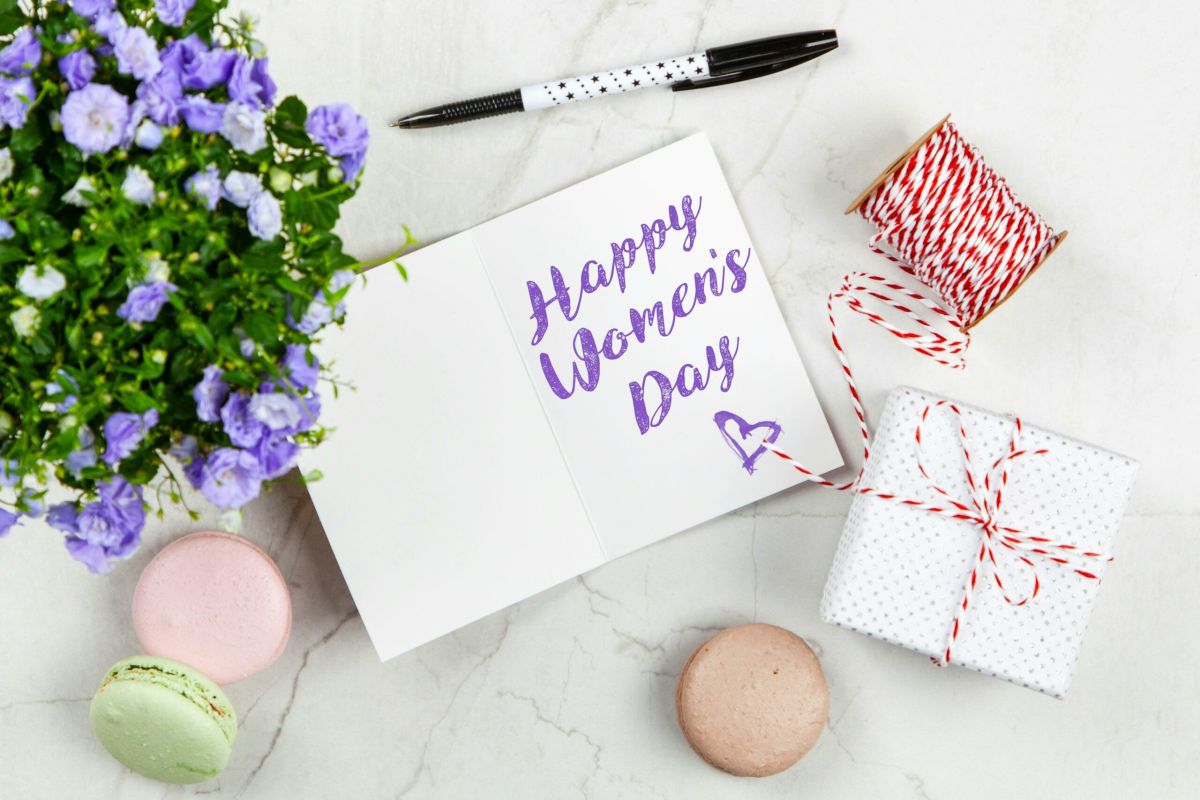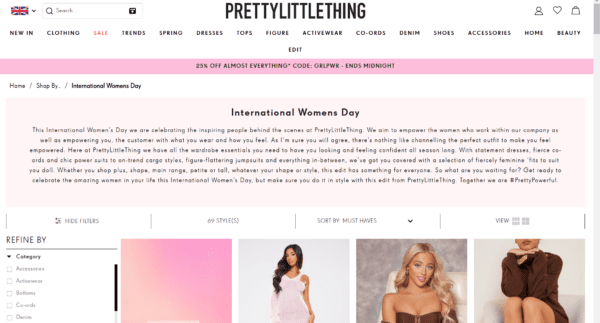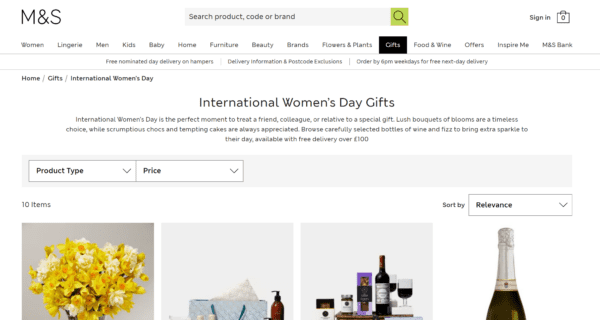
Since its establishment in 1911, International Women’s Day has stood as a cornerstone for commemorating the accomplishments of women and championing the cause of gender equality. March 8 continues to serve as a rallying point for advocating women’s rights, spanning from reproductive rights to social autonomy.
But in the framework of capitalist society, recent trends indicate a growing commercialisation of the day. Private companies are beginning to see the benefit of leveraging the occasion for personal interests rather than advancing the cause it represents.
Both Pretty Little Thing (PLT) and Marks & Spencer (M&S) have pages on their websites for “International Women’s Day Outfits” and “International Women’s Day Gifts” respectively. On each page, they list a number of their products – all of which are pre-existing products – to help women “channel your perfect outfit to make you feel empowered.”
Whilst I appreciate the 25% off in the name of feminism, channelling my Girl Power through a new baby tee is doing very little to overturn the vast levels of worldwide gender inequality. Unlike some companies, it is not apparent that any profit made on such products will go towards the development of gender equality. This entrenches the idea that these businesses are solely promoting the day for capitalist gain.

This move comes from a wider trend of commodifying advocacy and undermining social problems. Any Keeping Up With the Kardashians fan will remember the controversial 2017 Pepsi advert starring Kendall Jenner. The advert was set at a political protest, with Kendall seeming to resolve rising tensions between protestors and law enforcement through her gifting of a can of Pepsi. Amazing!
Pepsi later pulled the advert following criticism that it trivialised widespread Black Lives Matter protests. Although this event and its controversy were received on a much larger scale, it indicates that private companies will exploit social advocacy for capital gain.
To control this trend, we need to reserve these days for genuine acts of advocacy. There is a clear need for honest and open conversation about the experiences of being female in modern society, with International Women’s Day providing a clear opportunity for this. Exploitation for capital gain, undermines this, diminishing it as a day to feel “#PrettyPowerful” or to “treat a friend, colleague, or relative to a special gift”.

There is further irony in these actions. Whilst these companies showcase solidarity with International Women’s Day, they fail to address their own exploitative practices. In 2020, the Guardian reported that PrettyLittleThing’s parent company, Boohoo, was found to be selling clothes made by Pakistani workers who earned 29p per hour. Not 29 pounds – 29 pence. Considering that in Pakistan, 39% of garment workers are women, the products sold as a result of International Women’s Day advertising will often be made by women in third-world countries who are living through illegal employment and human rights abuses. This disconnect raises ethical concerns, emphasising the need for transparency and genuine commitment to the cause.
In contrast to commercial entities, the University of Manchester takes a different approach to International Women’s Day. They have, so far, merely used the day to highlight the excellence of women alumni at the University. Besides promoting their commitment to the UN’s gender equality goal, their International Women’s Day page solely promotes “Female Firsts,” a timeline of past achievements within the University. Despite this being incomparable to the exploitative practices of PLT and M&S, the University’s efforts fall short of addressing current gender inequality issues meaningfully. While celebrating the achievements of women at the university is commendable, it is a superficial acknowledgement which promotes the University without taking active steps towards fighting gender inequality.
International Women’s Day, once a day of genuine celebration and activism, now faces the threat of commercialisation. Companies like PLT and M&S risk overshadowing the day’s true purpose by prioritising profits over meaningful contributions to women’s causes. Similarly, institutions like our University, while making effort must take more substantial steps to actively address ongoing gender inequality issues. As International Women’s Day evolves, striking a balance between celebration and activism becomes crucial to preserve its authenticity and impact.







